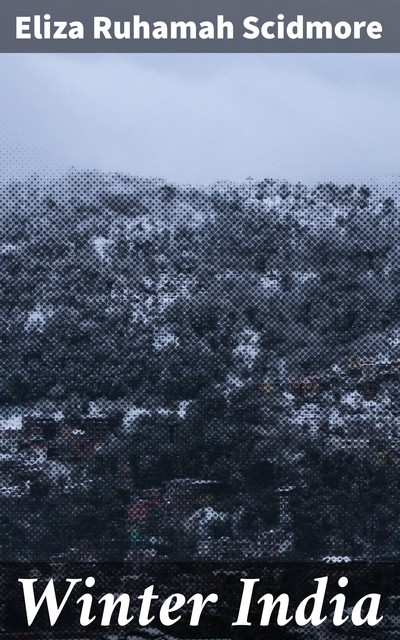We use cookies to improve the Bookmate website experience and our recommendations.
To learn more, please read our Cookie Policy.
To learn more, please read our Cookie Policy.
Accept All Cookies
Cookie Settings
In “Winter India,” Eliza Ruhamah Scidmore masterfully weaves a rich tapestry of her travels through India during the late 19th century. Penning her experiences with a keen eye for detail and a lyrical prose style, Scidmore captures the splendor of India's landscapes, cultures, and intricate social dynamics. This travelogue not only chronicles her physical journey but also offers deep reflections on colonialism and cultural exchange, offering readers a nuanced perspective of India through the lens of an outsider. Her observations, poetic descriptions, and vivid depictions enhance the literary context of travel writing during a period characterized by Western fascination with the East and reflect the complexities of an evolving world on the cusp of modernity. Eliza Ruhamah Scidmore was an American writer, photographer, and the first woman to become a member of the National Geographic Society. Her extensive travels spanned various continents, but her connection to India is particularly profound, as evidenced by her later role as an advocate for the preservation of cherry trees in Washington D.C. Scidmore'Äôs experiences and her position as a female traveler in a male-dominated field provide invaluable context for understanding the motivations and perspectives that shape her narrative in “Winter India.” For readers interested in the intersections of travel, culture, and historical context, “Winter India” is an illuminating exploration. Scidmore'Äôs eloquent prose invites readers to immerse themselves in her journey, prompting them to reconsider the colonial gaze and appreciate the intricacies of the cultures she encounters. This work stands as a significant contribution to both travel literature and the broader discourse surrounding Western interactions with India.
more
347 printed pages
- Copyright owner
- Bookwire
- Original publication
- 2020
- Publication year
- 2020
- Publisher
- Good Press
Have you already read it? How did you like it?
👍👎
fb2epub
Drag & drop your files
(not more than 5 at once)


